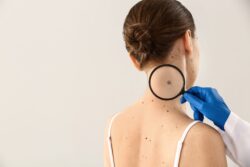What Should I Know About Exercising After My Hernia Surgery?
While it’s not new information to say that staying physically active can help keep individuals healthy and fit, fewer people understand the importance of physical movement and exercise after surgical procedures. Whether you have undergone cosmetic surgery or a medically necessary procedure, keeping yourself moving (but making sure that you don’t push your body too much, too fast) is essential to helping your recovery and results (both in the short term and long term). This blog will look at the specific importance of exercise and physical activity after hernia repair surgery, focusing on what exercises are best and how you can stay active while recovering from your surgical procedure.

What Is Hernia Repair Surgery?
A hernia is a medical condition in which an organ or tissue swells and bulges against or through the surrounding muscle or fascia (connective tissue). When this happens, men and women can experience swelling in the area as well as pain and discomfort. Hernia repair surgery is a surgical procedure in which the protruding organ or tissue is put back in the correct location, and the damaged muscle or fascia is closed (usually using a mesh piece to enforce the internal sutures). While this is a relatively simple procedure, you can achieve life-changing results. That is why it is so necessary to schedule your consultation appointment with Dr. Moore if you think that you are suffering from a hernia.
Why Is Exercising Good After My Hernia Surgery?
It is important to understand that any form of surgery is nothing more than a controlled injury to the body. Because of this, one of the best things that you can do immediately following your hernia repair surgery is rest up and allow your body to heal and recuperate. However, remaining in a relaxed position for too long can actually have adverse effects on your body, especially in regard to the duration of your recovery and your results. To help fix this, physical movement (including exercise) is necessary to help you recover quicker and more fully from your hernia repair surgery.
Exercise after surgery helps with several aspects of your recovery. The first is that physical movement, especially exercise, increases your blood circulation. This is important because the increased circulation of the blood allows for oxygen and other nutrients to be carried throughout your body more effectively, including the area where the hernia repair took place. This, then, reduces inflammation and swelling in the surgical area, which helps to speed up your actual recovery.
In addition to improved blood flow and circulation, exercise helps to strengthen your body, which has likely become weaker over the previous days due to inactivity. By exercising correctly and with a purpose, you can help your body strengthen itself, which can help to keep future issues from occurring.
What Are the Best Exercises to Do?
When exercising after your hernia surgery, it is so vital that you listen to your body and that you do not push yourself more than your body allows. That means that you should heed all post-surgical instructions from Dr. Moore as well as start your physical activity slowly and build from there.
Short and slow walks are really the best place to start. You want to allow your body to begin acclimating itself to physical movement again. By doing too much too soon, you risk causing pain and injury to your body. Each day, you can try walking a little farther than the day before. Once you feel confident in your ability to walk without any complications (which generally takes up to six weeks), then you can begin integrating other exercises. However, it is so important that you do not perform any overly strenuous or high-impact exercises. Additionally, weightlifting is one of the worst types of physical activities that you can do after hernia repair. Instead, stick to low-impact exercises, such as biking, swimming, and stretching (including yoga). By exercising, you will find yourself feeling like you once did, but, again, make sure that you are listening to what your body is telling you.
For more information about hernia repair surgery, please contact Patrick Moore MD, FACS by calling 951-477-5700.




